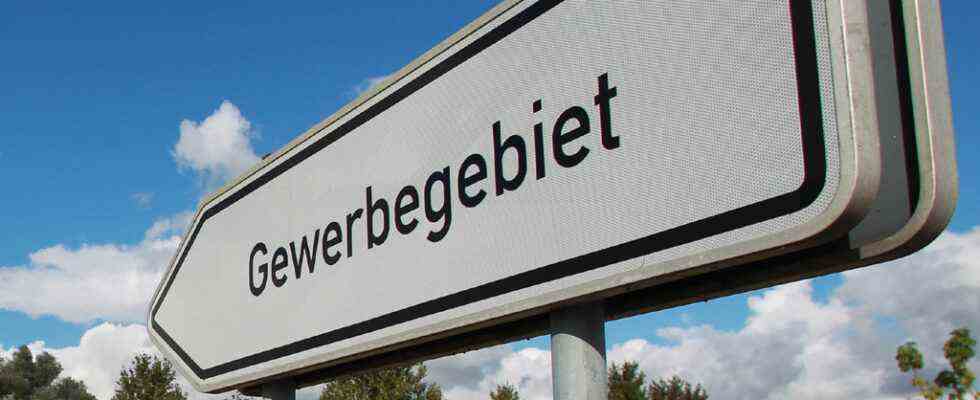Exclusive
Status: 02/14/2022 7:00 p.m
Municipalities lure companies with extremely low trade taxes – SPD and Greens want loud panorama and “SZ” take action against this tax dumping. The Ministry of Finance, led by the FDP, sees no need for action.
The factions of the SPD and the Greens in the Bundestag want to take action against so-called “trade tax havens” in Germany. However, the FDP-led Federal Ministry of Finance considers an increase in the minimum assessment rate for trade tax to be superfluous. The right of the municipalities to determine the trade tax rates should not be “restricted disproportionately”.
Municipalities depend on trade tax as the most important source of income. Large cities in particular use it to finance spending on local public transport, childcare, swimming pools and social services. Each municipality can determine the so-called rate of increase for trade tax itself. It must be at least 200 percent. According to the German Association of Cities and Towns, the average rate in the large municipalities and urban districts is 449 percent. But individual municipalities charge significantly less trade tax.
Greens and SPD for nationwide solution
“We are opposed to tax avoidance practices in the case of trade tax and the drastically divergent assessment rates,” says Bernhard Daldrup, spokesman for local politics for the SPD and member of the Bundestag’s finance committee ARD–Magazine Panorama and the “Süddeutsche Zeitung”.
When municipalities radically reduce their trade tax rate “at the expense of surrounding communities, they act in a lack of solidarity and thus harm not only the neighboring communities, but indirectly also the people who live there,” explains Stefan Schmidt, finance politician for the Greens in the Bundestag. His parliamentary group is basically open to raising the tax rate. One wants to work towards a nationwide solution “that curbs tax avoidance in the long term”.
dummy registered offices
It is striking that municipalities in the vicinity of large cities in particular attract companies with very low trade taxes. Asset management from billionaire entrepreneurial families are also migrating to these municipalities with low trade taxes.
Examples are Grünwald (rate 240) and Pullach (260) near Munich, Zossen (270) near Berlin and Leverkusen (250) and Monheim (250) near Cologne and Düsseldorf. According to calculations by the “Tax Justice Network”, the public sector loses an estimated one billion euros in trade tax revenue every year as a result of such tax havens.
In addition, special service providers offer “virtual company offices” in these oases, as Panorama already reported in 2021. They provide companies with official places of business, including telephone and postal services. Many of these supposed company headquarters look like pure letterbox locations.
“Cram the worst excesses of dumping”
There is also a call from the German Association of Cities for a significant increase in the minimum collection rate. The chairman of the Finance Committee, Harald Riedel, has a personal opinion on this. He advocates a rate of 300 to 320 percent, “then you would have curbed the worst excesses of dumping.”
The SPD member of the Bundestag Daldrup reports that his party had proposed an increase to 250 percent in the coalition negotiations. “Unfortunately, no agreement could be reached with the coalition partners on this point.”
Apparently they still disagree. The FDP parliamentary group in the Bundestag sees the states as having a duty. “A trade tax reform is therefore currently not planned,” said Christoph Meyer, deputy chairman of the FDP parliamentary group.
Blind spot in the tax budget
The Federal Ministry of Finance, led by FDP leader Christian Lindner, explained on request that the municipalities could “compensate for other locational disadvantages in the competition for commercial settlements” with their tax rates. The minimum rate of 200 percent prevents individual communities from gaining excessive locational advantages by setting very low rates.
But tax avoidance is now taking place on a large scale. Left Party leader Janine Wissler therefore wanted to know from the Federal Minister of Finance how high the tax losses would be as a result of this competition to the bottom by the municipalities. The answer from the ministry is astonishing: the federal government has no information on this. Wissler criticizes that the federal government must “finally present reliable figures on the extent of abusive tax structuring by letterbox branches and the associated tax losses”.

